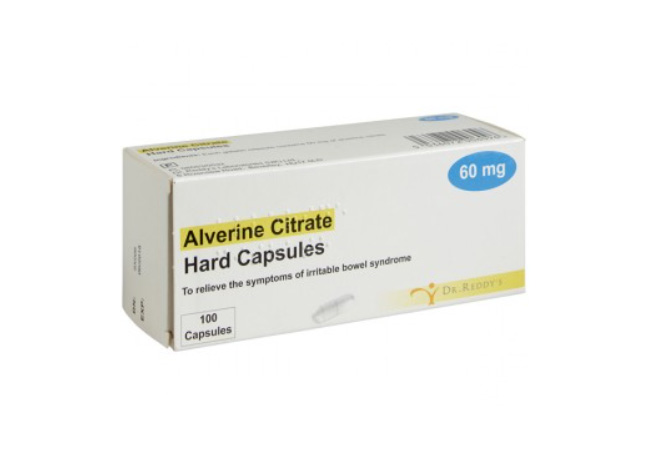Alverine is a medication used to relieve symptoms of irritable bowel syndrome (IBS) and other gastrointestinal disorders. It is classified as an antispasmodic agent, which works by relaxing the smooth muscles of the gut to reduce pain and discomfort associated with muscle spasms. Alverine is typically taken orally in capsule form, with the standard adult dose being 60-120 mg taken up to three times a day.
Alverine is effective in relieving symptoms of irritable bowel syndrome (IBS) and other gastrointestinal disorders, particularly by reducing abdominal pain and cramping caused by muscle spasms, with many patients experiencing significant symptom relief and improved quality of life.
Research and clinical trials have shown that alverine is comparable in effectiveness to other antispasmodic medications used for IBS, providing significant improvement in symptoms for many patients.
Take 1 tablet up to three times a day, ideally around 20 minutes before your usual main meals. Swallow each tablet with plenty of water – do not chew them.
If you miss a dose, take it as soon as you remember, but skip it if it's almost time for your next dose; do not double up on doses. Continue taking alverine as prescribed, even if you start feeling better, and do not stop without consulting your doctor.
Unless you have been specifically advised by your doctor, only take this medicine when needed. This means that you should only take it once your symptoms begin to flare up and stop taking it when they subside. This can take a couple of weeks.
If your symptoms have not improved after two weeks, or if they get worse, you should stop using this medicine and contact your doctor.
Always use this medication exactly as your clinician has told you. Check with our clinical team or your GP or pharmacist if you are not sure.
Medicines and their possible side effects can affect individual people in different ways. The following are some of the side effects that are known to be associated with this medicine. Just because a side effect is stated here, it does not mean that all people using this medicine will experience that or any side effect.
Common Side Effects
Digestive Issues
Nausea: A feeling of sickness that may lead to vomiting.
Indigestion: Discomfort or pain in the stomach, often associated with difficulty digesting food.
Constipation:Difficulty in passing stools, which can result in infrequent or hard bowel movements.
Central Nervous System
Dizziness: A sensation of light-headedness or unsteadiness.
Headache: Pain in the head or neck, which can range from mild to severe.
Uncommon Side Effects
Skin Reactions
Rash: Red, itchy, or inflamed skin patches.
Itching (Pruritus): An uncomfortable sensation that provokes the urge to scratch.
General Symptoms
Fatigue: Unusual tiredness or weakness that may impact daily activities.
Rare Side Effects
Cardiovascular Issues
Palpitations: A sensation of irregular or unusually strong heartbeats.
For full information on side effects and correct use, see the patient information leaflet. If any side effects concern you, or you are experiencing any of the side effects mentioned in the patient information leaflet whilst taking this medication, please contact our clinical team or speak to your GP.
Alverine might not be the right treatment for you if any of the following apply:
You are aged 40 years or over- You have passed blood in your stools
- You are feeling sick or vomiting
- You have lost your appetite or lost weight
- You are suffering from severe constipation
- You are looking pale and feeling tired
- You have abnormal vaginal bleeding or discharge
- You have a fever
- You have difficulty or pain passing urine
- You have recently travelled abroad
Get emergency medical help if you have signs of an allergic reaction to this medication. These include:
- Hives
- Dizziness
- Fast or pounding heartbeats
- Wheezing
- Difficult breathing
- Swelling of your face, lips, tongue, or throat.
It is important that you let us know which prescription, over-the-counter medicines and recreational drugs you are currently taking. You must also tell us about any other medical conditions that you currently have (or had in the past). This will help us ensure the prescribed medication is safe and appropriate for you to take.
For full information on warnings, medication interactions and contraindications, refer to the Patient Information Leaflet. Please read all packaging and the Patient Information Leaflet before taking any new medicine and inform our clinical team or your GP of medicines you are taking or intend to take.







